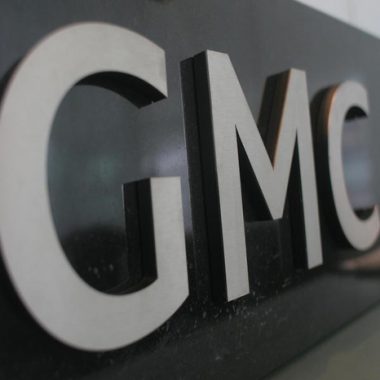UK doctor leaders have supported a vote of no confidence in the GMC following the controversial court case involving Dr Hadiza Bawa-Garba.
The BMA’s Annual Representative Meeting voted in favour of a motion declaring ‘that it has no confidence in the GMC as a professional regulatory body’.
ARM delegates also carried a part of the motion calling for ‘a public inquiry to review the GMC’s conduct in the Bawa-Garba case’.
But they opposed calls for GMC chief executive Charlie Massey and chairman Sir Terence Stephenson to resign.
They also opposed ‘legislative changes to make sure that the Government, and not the profession, funds the GMC’.
Proposing the motion, Dr Krishna Kasaraneni, the BMA’s GP Committee workforce lead, said: ‘We can all relate to working in an environment where there simply aren’t enough hours in the day to do justice to every single one of our patients.
‘When faced with what seems like impossible situations, what doctors, particularly junior doctors need, is a helping hand – not threats of a criminal prosecution.’
GP leaders attending this year’s LMCs Conference also declared a vote of no confidence in the GMC, on the same grounds.
LMC leaders also called on the BMA to advise GPs to ‘disengage from written reflection in both appraisal and revalidation’ until new safeguards are put in place.
Since then, the Government has declared its intention to strip the GMC of its right to appeal fitness-to-practise rulings by its own tribunal.
While no speakers opposed the no confidence motion, the delegates heeded opposition to calls for the GMC’s chief executive Charlie Massey and chairman Sir Terence Stephenson to resign.
Dr Jenny Vaughan, a representative from the consultants’ conference, said: ‘I think GMC leadership shouldn’t resign. They should sort out the mess they’ve created and also we can only do that – by funding the GMC we actually hold them more accountable.
‘Turn it over to the politicians and the public purse you just won’t get that.’
BMA chair Dr Chaand Nagpaul said: ‘I think it’s worth reminding ourselves that if we really want to fix a harrowing climate of blame in the NHS, we also have to fix a multiplicity of factors that occurred and proceeded the GMC’s intervention.
‘It starts at the fact that we don’t have a system that considers system factors, pressures and failing in the workplace and at the first stage that did not happen and the trust was not held to account.’
He added: ‘We don’t have confidence in the consistency in the criterion of a criminal prosecution of GNM and it actually raised the whole question of whether a court can judge complex medical situations without training and understanding of human factors.’
The vote of no confidence in the GMC was carried by a margin of 186 votes.
The motion in full
Motion by the agenda committee (to be proposed by Sheffield division): That this meeting, in view of the widespread concerns about the adverse effects of the General Medical Council’s actions in the Bawa-Garba case and its impact on NHS culture and morale:-
i) declares that it has no confidence in the GMC as a professional regulatory body;
ii) demands an apology from the GMC over its handling of that case;
iii) calls upon the Chief Executive and Chairman of GMC to resign;
iv) directs the BMA to seek legislative changes to make sure that the government, and not the profession funds the GMC;
v) calls for a public inquiry to review the GMC’s conduct in the Bawa-Garba case.
Source: BMA
Pulse October survey
Take our July 2025 survey to potentially win £1.000 worth of tokens













